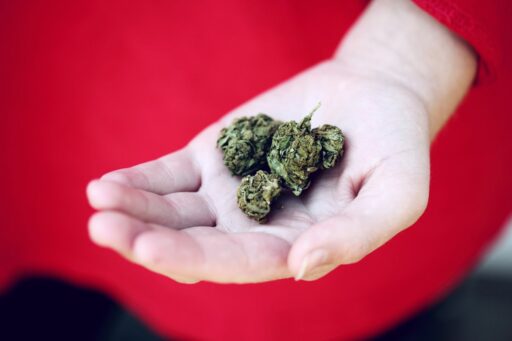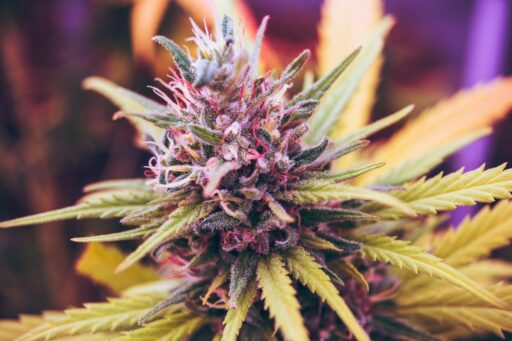The use of medical marijuana has garnered significant attention in recent years, with a growing body of research exploring its potential health advantages. This article delves into various aspects of medical marijuana usage, from its impact on driving and psychosis to its therapeutic potential, public opinion, and cultural developments. We’ll examine the latest studies, policy discussions, and trends shaping the perception and application of medical cannabis.
Key Takeaways
- Recent studies indicate that prescribed medical cannabis has a minimal impact on driving performance and is not linked to increased psychosis rates.
- Interactions between cannabinoids, terpenes, and flavonoids are found to offer medical benefits, and psychedelics like psilocybin and LSD may enhance sexual satisfaction.
- Public opinion favors using marijuana tax revenue for education and housing, and there’s a call for the DEA to review marijuana rescheduling.
- Advocacy groups in regions like Kansas are pushing for medical cannabis legalization, with higher usage of Delta-8 THC in states where marijuana is not legal.
- Cultural and industry developments include calls for Black ownership in the marijuana industry and the integration of CBD partnerships with sports teams.
The Impact of Medical Marijuana on Driving and Psychosis

Study Reveals Minimal Effect of THC on Driving Performance
Recent research has brought to light the impact of THC on driving abilities, a critical concern for both medical marijuana users and public safety officials. A study suggested that the consumption of medical cannabis containing THC has a negligible impact on driving performance when used as prescribed. This finding is significant as it challenges the common perception that THC invariably impairs driving skills.
The implications of this study are profound, indicating that patients who consume medical marijuana might not necessarily experience detrimental effects on their driving capabilities, provided they adhere to their prescribed dosages.
The study’s results are summarized in the table below:
| THC Dose (mg/dose) | Impact on Driving Performance |
|---|---|
| 1.13 – 39.18 | Negligible |
These findings are crucial for informing future policies and guidelines regarding medical marijuana use and driving regulations. They also provide a foundation for further research into the nuances of cannabis’s effects on various aspects of daily life.
Canadian Research Finds No Link Between Legalization and Psychosis Rates
In a significant finding for the cannabis debate, recent Canadian research has concluded that the legalization of marijuana does not correlate with an increase in psychosis rates. This challenges the notion that broader access to cannabis directly impacts mental health disorders.
The study’s results are particularly relevant as they address concerns that have been raised about the potential negative consequences of legalizing marijuana. The findings suggest that while individual risk factors must be considered, the overall legalization policy does not inherently lead to higher instances of psychosis.
- Legalization Date: October 17, 2018
- Study Publication: January 8, 2024
- Key Finding: No significant change in psychosis rates post-legalization
The implications of this study are far-reaching, potentially influencing future policy decisions and public health strategies. It underscores the importance of evidence-based approaches when evaluating the impact of drug policy reforms.
The Therapeutic Potential of Cannabis Compounds

Interactions of Cannabinoids, Terpenes, and Flavonoids in Medical Benefits
The synergistic effects of cannabinoids, terpenes, and flavonoids, often referred to as the ‘entourage effect,’ are believed to enhance the therapeutic potential of medical marijuana. Cannabinoids like THC and CBD are well-known for their medicinal properties, but it’s the interaction with terpenes and flavonoids that may amplify the benefits.
- Cannabinoids interact with the body’s endocannabinoid system to regulate functions such as pain, mood, and appetite.
- Terpenes contribute to the aroma and flavor of cannabis and may also influence its effects on mood and stress.
- Flavonoids, which are found in various plants, have antioxidant properties and may complement the anti-inflammatory effects of cannabinoids.
The precise mechanisms by which these compounds work together are still being unraveled, but the evidence points to a complex interplay that could lead to more effective treatments for a range of conditions.
Further research is essential to fully understand the medical benefits of these interactions. As the body of evidence grows, so does the potential for targeted therapies that leverage the unique properties of these compounds.
Psychedelics and Their Role in Enhancing Sexual Satisfaction
Recent studies have shed light on the intriguing relationship between psychedelic substances and sexual satisfaction. Research indicates that psychedelics such as psilocybin and LSD may significantly enhance sexual satisfaction for months following their use. This revelation has sparked interest in the potential therapeutic applications of these substances, particularly in the context of sexual functioning.
While the mechanisms behind this enhancement are not fully understood, it is believed that the increased sense of connection and openness facilitated by psychedelics plays a key role. Users often report a heightened sense of intimacy and emotional bonding, which can positively impact sexual experiences.
The implications of these findings are vast, suggesting that psychedelics could offer a novel approach to addressing sexual dysfunction and improving overall sexual well-being.
The conversation around psychedelics is evolving, with legislative bodies such as the Alaska Senate Panel and Hawaii Panel considering proposals to advance psychedelic-assisted therapy. This shift in perspective underscores the growing recognition of the therapeutic value of these substances.
Policy and Public Opinion on Cannabis Legalization

The Boston Globe Urges DEA to Review Marijuana Rescheduling
In a significant move, The Boston Globe editorial board has urged the Drug Enforcement Administration (DEA) to swiftly complete its review on the rescheduling of marijuana. This call to action comes amidst a growing consensus that current federal regulations on cannabis are outdated and hinder scientific research and medical use.
The rescheduling of marijuana could have profound implications for medical research, legal implications, and social justice issues.
A recent legal opinion suggests that moving marijuana to Schedule III would not conflict with international drug treaties, countering previous DEA assertions. Advocacy groups are closely monitoring the situation, as the outcome could pave the way for more comprehensive cannabis reform.
- **Key Points: **
- The Boston Globe’s call for action
- The potential move to Schedule III
- Non-violation of international treaties
- Implications for research and justice
The DEA’s decision is eagerly anticipated, with implications that could extend far beyond the medical community to affect federal law, state regulations, and the lives of countless individuals.
Voters Advocate for Marijuana Tax Revenue to Support Education and Housing
In the evolving landscape of cannabis legalization, public opinion is a powerful force shaping policy decisions. A recent poll indicates a strong preference among voters for the allocation of marijuana tax revenue. Instead of funding law enforcement, the consensus leans towards supporting vital social services.
- Education and housing emerge as top priorities for the use of these funds.
- Voters express the need for transparent and responsible management of revenue.
- There is a growing call for reinvestment in communities disproportionately affected by past drug policies.
The allocation of marijuana tax revenue reflects a societal shift towards recognizing the plant’s potential for positive community impact. As states navigate the complexities of legalization, the voice of the electorate remains a guiding beacon, advocating for a redirection of funds that aligns with broader social welfare goals.
Regional Trends in Cannabis Legalization and Usage

Kansas Advocacy Groups Push for Medical Cannabis Legalization
In Kansas, advocacy groups have been vocal about the necessity of legalizing medical cannabis. They have been actively petitioning House and Senate legislators, emphasizing the potential health benefits and the need for legal access to medical marijuana for patients. The push for legalization is gaining momentum, with discussions becoming more frequent and public support growing.
- Advocates highlight the importance of patient access to medical treatments.
- They argue for the economic benefits of legalization, including potential tax revenue.
- The groups are working to educate legislators on the medical advantages of cannabis.
The focus is on creating a well-regulated system that ensures safe and controlled access to medical cannabis for those in need.
While the debate continues, it’s clear that Kansas advocacy groups are determined to see medical cannabis legalized. Their efforts reflect a broader trend towards recognizing the therapeutic potential of cannabis and the importance of making it available to patients.
Higher Delta-8 THC Usage in States Without Legal Marijuana
In regions where marijuana remains illegal, there has been a notable shift towards the consumption of delta-8 THC, a hemp-derived cannabinoid. This trend underscores the public’s search for legal alternatives to traditional cannabis products. A study highlights that search interest in delta-8 THC is nearly twice as high in these states compared to those with legalized marijuana.
The implications of this shift are multifaceted. On one hand, it reflects a demand for cannabis-related products in spite of legal barriers. On the other, it raises concerns about the unregulated nature of delta-8 THC and its safety profile. The table below succinctly captures the comparative interest in delta-8 THC across different states:
| State | Legal Status of Marijuana | Delta-8 THC Search Interest |
|---|---|---|
| Ohio | Illegal | High |
| Texas | Illegal | Moderate |
| Florida | Legal with restrictions | Low |
The rise in delta-8 THC usage in states without legal marijuana options may indicate a gap in the current drug policy framework, which could be addressed by reevaluating cannabis legislation.
It’s important to note that while delta-8 THC is accessible, it often lacks the quality control measures that regulated cannabis markets provide. Consumers in these states are navigating a complex landscape, where the legality of cannabis is still a contentious issue.
Cannabis Culture and Industry Developments

Rapper Killer Mike’s Views on Marijuana Industry Ownership
Rapper and activist Killer Mike has been vocal about the potential role of the marijuana industry in addressing historical injustices. He suggests that the industry could serve as a form of reparations, particularly for Black communities that have been disproportionately affected by the war on drugs. His stance is that government intervention is necessary to ensure that Black individuals have the opportunity to lead and benefit from the burgeoning industry.
- Government intervention
- Economic empowerment
- Historical reparations
This approach to industry ownership could create a significant shift in economic dynamics, providing a platform for wealth generation and community development.
Killer Mike’s perspective is not just about ownership but also about the broader implications of such a move. It’s about rectifying past wrongs and creating a more equitable future. The conversation around marijuana industry ownership is complex, involving legal, social, and economic considerations, but voices like Killer Mike’s are crucial in pushing the dialogue forward.
Sports Teams and the Integration of CBD Partnerships
The integration of CBD partnerships with sports teams marks a significant shift in the perception and acceptance of hemp-based products within the professional sports industry. The Brooklyn Nets and New York Liberty have set a precedent by becoming the first NBA and WNBA teams to partner with a CBD company. This move reflects a broader trend where sports organizations are exploring the potential benefits of CBD for athletes, including pain management and recovery.
As the sports world continues to embrace CBD, we see a variety of partnerships emerging. Below is a list of recent collaborations between sports teams and CBD firms:
- Brooklyn Nets: First NBA team to announce a CBD partnership
- New York Liberty: Pioneering WNBA team in the CBD space
- UFC: Issued warnings to fighters about marijuana use under athletics rules
The evolving landscape of sports sponsorships now includes CBD products, highlighting a growing acceptance and interest in the potential therapeutic benefits for athletes.
Conclusion
In summary, the exploration of medical marijuana usage presents a compelling case for its health advantages. Studies have shown that prescribed THC consumption has minimal impact on driving performance, and the use of psychedelics like psilocybin and LSD can lead to improved sexual satisfaction. Moreover, the interaction of marijuana compounds such as cannabinoids, terpenes, and flavonoids has been found to offer medical benefits. Importantly, the legalization of cannabis in regions like Canada has not been associated with an increase in psychosis rates, suggesting a responsible approach to legalization can mitigate potential risks. Advocacy for medical cannabis legalization continues to grow, as seen in Kansas and Wisconsin, with a focus on public health and scientific evidence. As the conversation evolves, it is crucial that future policies are informed by these findings to maximize the therapeutic potential of medical marijuana while ensuring public safety.
Frequently Asked Questions
Does medical marijuana affect driving performance?
A study has suggested that medical cannabis containing THC has a negligible impact on driving performance when used as prescribed.
Has cannabis legalization in Canada led to increased rates of psychosis?
Recent research affirms that cannabis legalization in Canada is not linked to increasing rates of cannabis-related psychosis.
What are the therapeutic benefits of cannabinoids, terpenes, and flavonoids?
A new study shows that the interaction of marijuana compounds like cannabinoids, terpenes, and flavonoids can provide significant medical benefits.
How do voters feel about the allocation of marijuana tax revenue?
Voters have expressed in a new poll that marijuana tax revenue should fund education and housing, rather than police and prisons.
What is the status of medical cannabis legalization in Kansas?
Advocacy groups in Kansas are actively pushing for the legalization of medical cannabis and are seeking support from House and Senate legislators.
What impact has the lack of legal marijuana had on the usage of delta-8 THC?
Studies have found that states without legal marijuana have higher rates of usage of unregulated hemp-derived compounds like delta-8 THC.





